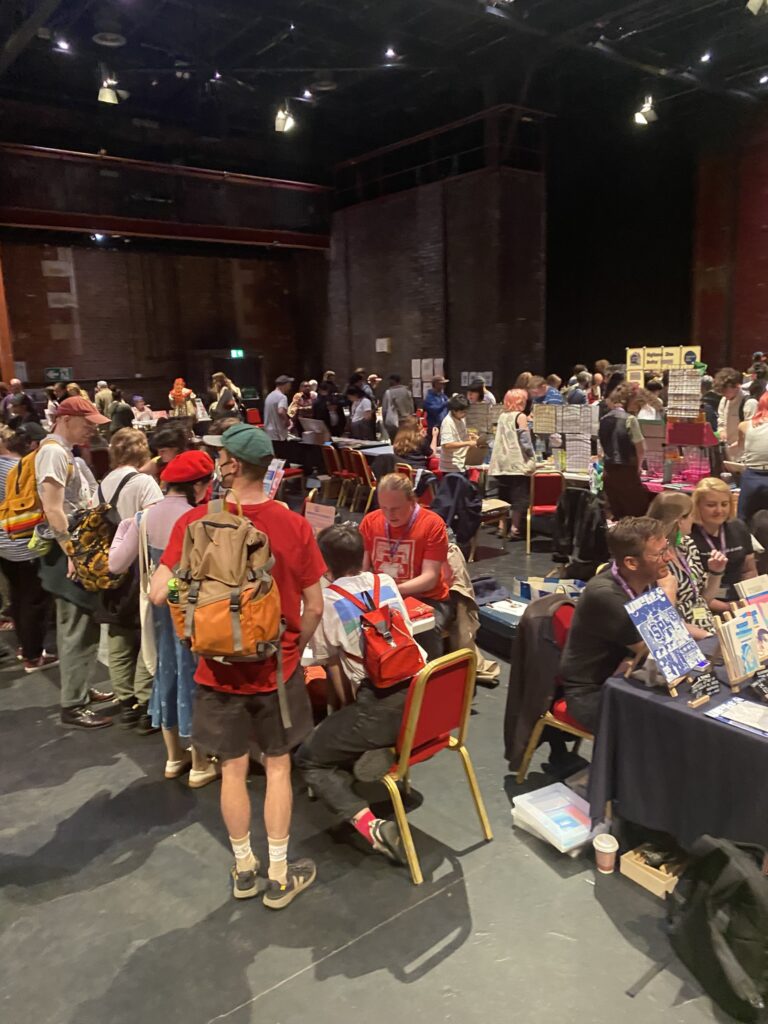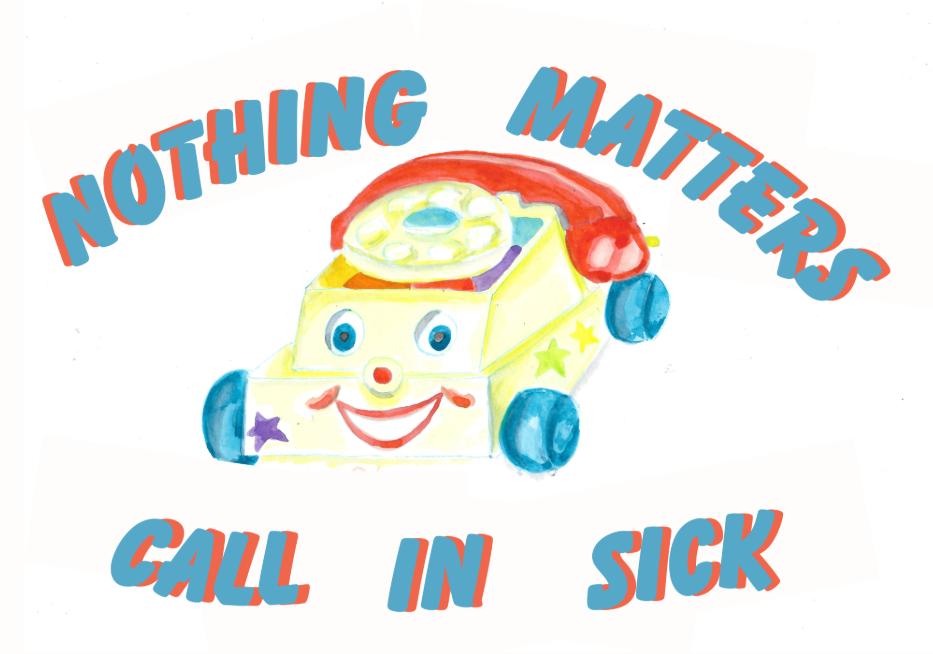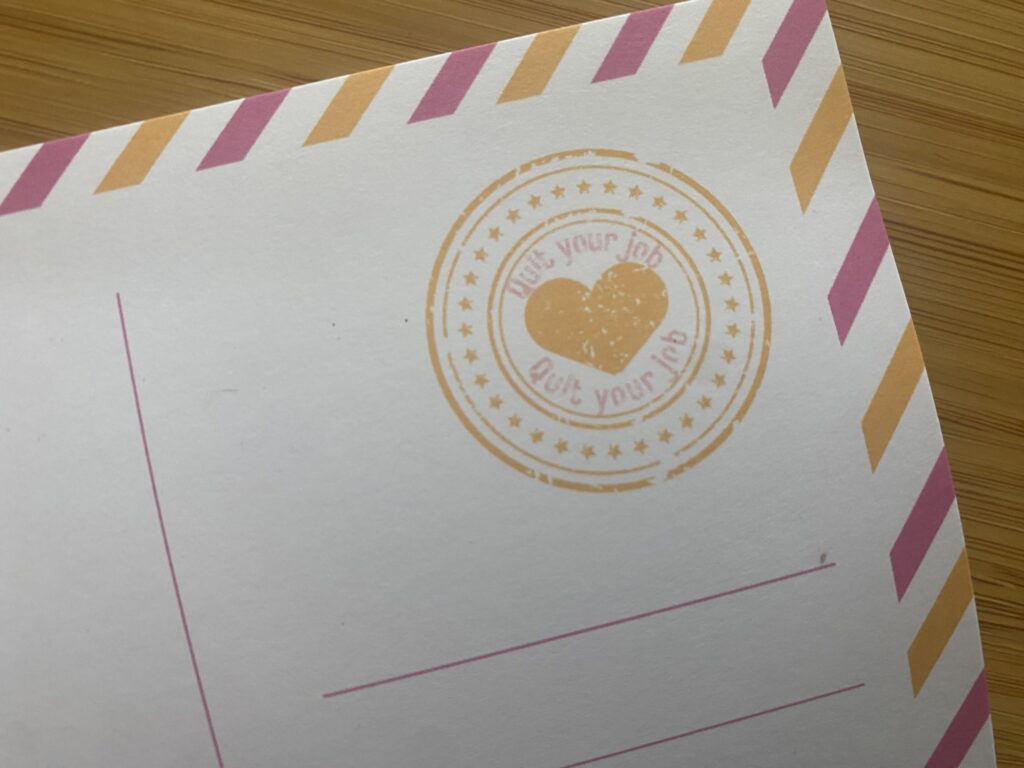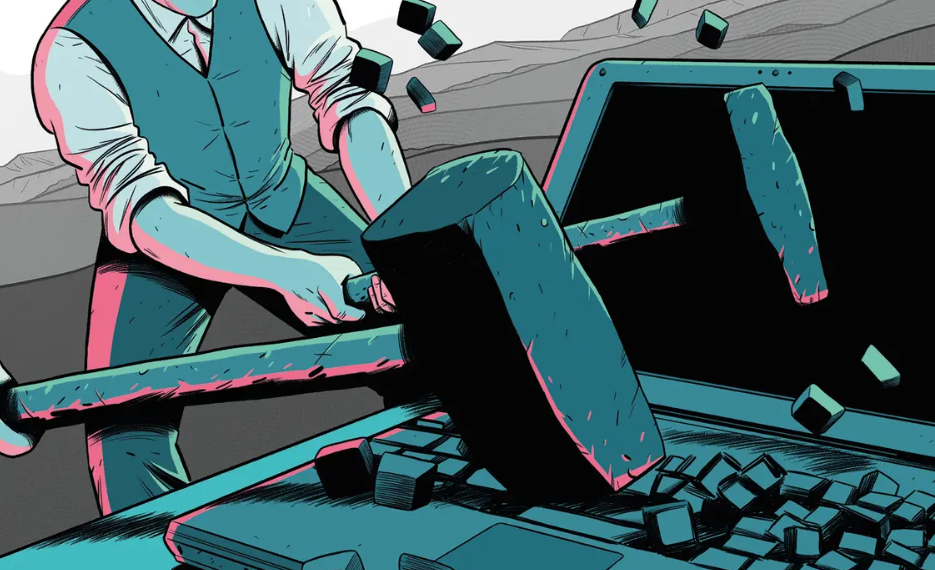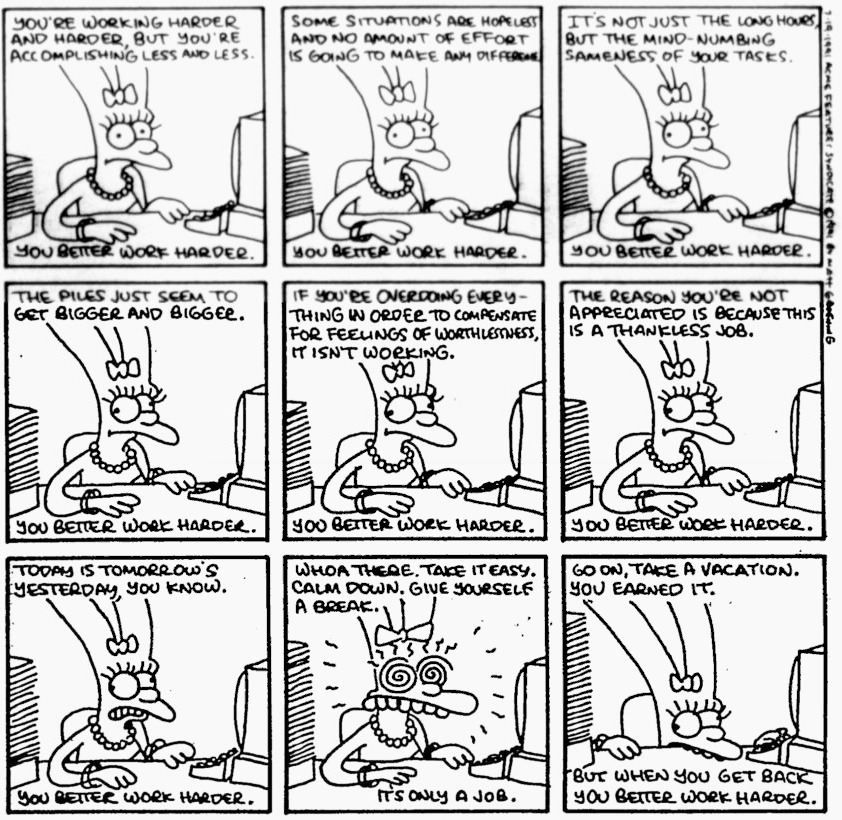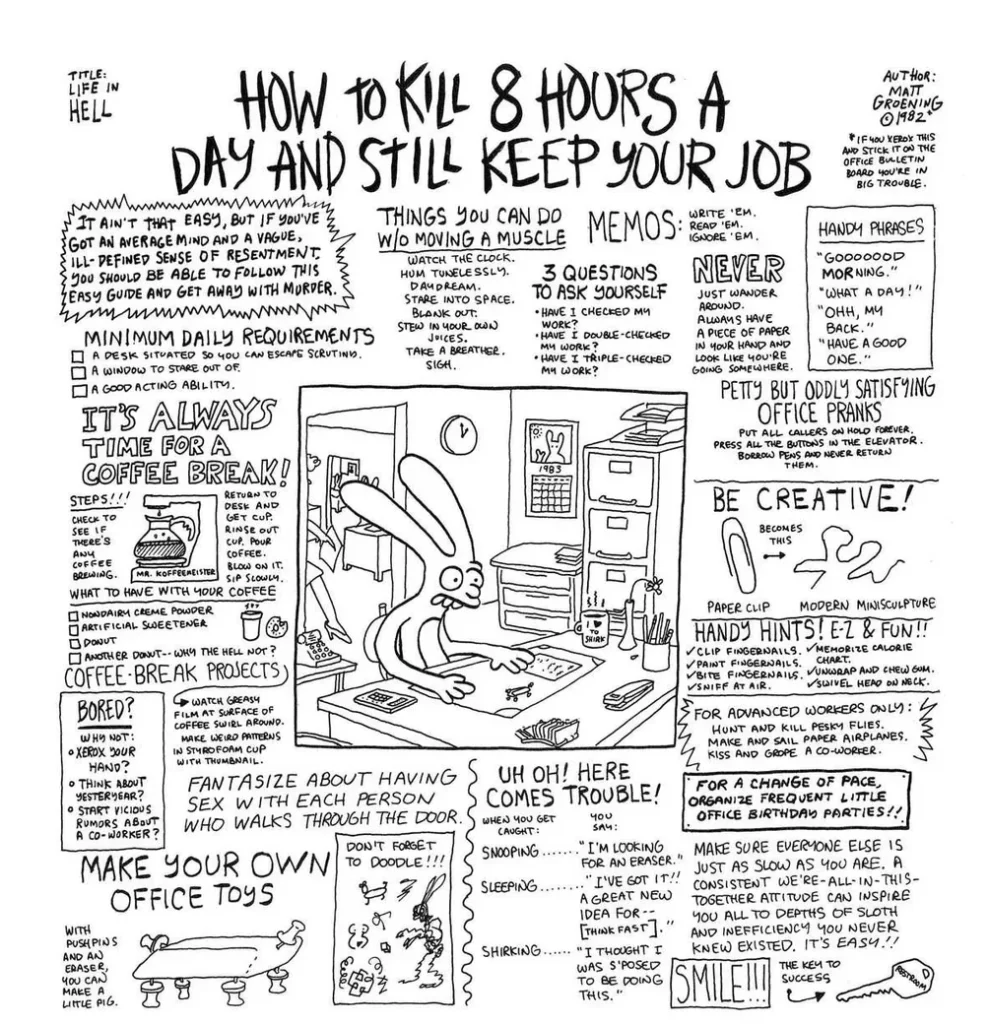That’s Exactly Why I Was Sacked
I’ve been reading the online diary of New Escapologist contributor Dickon Edwards from the beginning.
This is for a gig: I’m editing Dickon’s diary for print (and the project is almost fully funded on Kickstarter, so maybe you can be the one who tips it over).
After seeing the classic Mick Jagger movie Performance at a London cinema, Dickon writes:
[They’re showing it] again this Wednesday at 1pm. Tickets are £4 and include a free tea or coffee. I think I’ll go. If I had a day job, I’d phone in sick to attend.
Actually, that’s exactly why I was sacked from an office job in Bristol circa 1993. I felt like seeing a matinee of Groundhog Day far more than going into work. So I phoned in sick and chose happiness for that day. It wasn’t the first time. Come the Monday, I was told to clear my desk. I’d do it again like a shot. I’m fairly certain no one died from insolvency documents not being typed up.
Doubtless some toiling readers will be appalled by that above confession. People tell me, “That’s all very well Dickon, but I have bills, a mortgage and an ungrateful chinchilla to support. I can’t afford to lose my job.” Well, neither could I at that point. But I survived somehow. Once again, life is either a disaster or an adventure. So better make it an adventure.
That’s what I love most about Dickon. A fellow traveller in this regard, he takes a risk sometimes, chooses happiness. And, as he says, we survive somehow.
It’s true that if everyone who was unhappy with their job acted like me, civilisation would collapse at once. But oh, what a party!
*
I recommend Dickon’s diary for Escapologists, either through the elegant book we’re working on or through the also-elegant original web pages.
A Drink With the Idler & Idler Festival 2025
Here’s ten minutes of the “Drink with the Idler” event I did last month.
We talk in a relaxed sort of way about my books, about escape, about the embarrassing return to work, and about the hostile environment.
Speaking of the Idler, I’ll be performing at the Idler Festival this Sunday. Come one, come all.
Herring/Dowie
If I don’t know where I’m going, I can’t be lost.
Last year, I helped John Dowie with the publication of his new book as well as one of his older, out-of-print books.
The out of print title is called The Freewheeling John Dowie (currently available as an ebook only) and is about the time he sold off all his possessions, taking to the road with only a bicycle and a tent.
Herring: Do you regret getting rid of all your records and comics?
Dowie: No, no, no.
Richard Herring interviewed Dowie on his podcast this week about both books. Escaping with no possessions has clearly captured Herring’s imagination and they talk about it a lot.
Use the link above to enjoy all 55 minutes of book chat, or here’s a clip/trailer for a sense of the thing.
Both comedians have been interviewed in New Escapologist, incidentally. Herring in Issue 10, Dowie in Issue 17.
*
Nothing Matters, Call in Sick
I was at Glasgow Zine Fair on the weekend. I bought plenty of zines and prints and badges and postcards, including this lovely one:
It’s by the awesome Holly Casio and depicts a toy from our shared childhood, one which may or may not be haunted. She sells it as a really nice print here.
It even has a nice “quit your job” postmark on the back:
Also spotted: I’m A Luddite (And So Can You!), by the mighty Tom Humberstone, to whom I was able to chat for a while. Funnily enough, he’s in the photograph I took of the room (at the top of this post), in the bottom-right. His comic is about automation and “the misunderstood history of Ludism” and can be read online in its entirety at The Nib.
*
Letter to the Editor: It’s Better to Get on the Wrong Train Than Get Stuck at the Station
To send a letter to the editor, simply write in. You’ll get a reply and we’ll anonymise any blogged version.
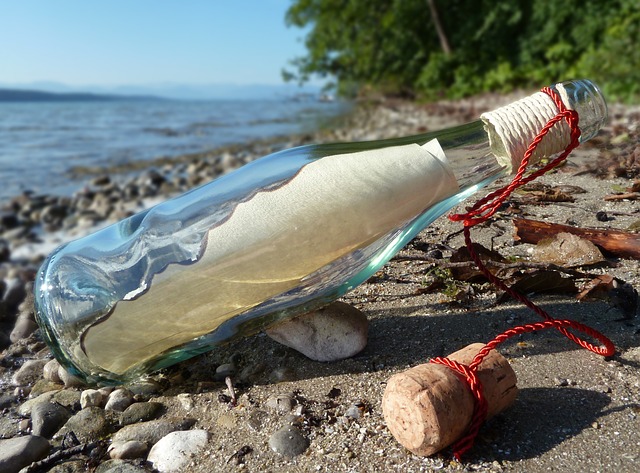
Reader B writes:
Hi Rob,
I was wondering if you’d heard of or seen the film, The Last Journey (2024). It’s a Swedish documentary about a man and his friend who takes his elderly dad, a former French teacher on a trip to France to try to bring him back to life.
It made me think of a lot of Escapological ideas: the power of travel to affect us, interest in other cultures and ways of life, the joy of old tech (cine films and cassettes are a big part as well as an old Renault 4) and how a rewarding life is/should be about more than just accumulating money and stuff.
One of the lines that stuck with me was a piece of advice the teacher gave to one of his students, “It’s better to get on the wrong train than get stuck at the station”.
I think we are all fearful of making big changes and the consequences of those not working out which can make us stay in terrible jobs we hate for years or get stuck in indecision mode.
Anyway, it’s a great movie and struck a chord and made me laugh too. Having looked after my parents in their later years (an escape from the office in some respects) it was interesting to see aspects of that [life] on screen. I’m not sure whether the next Mission Impossible will have Tom Cruise ask a co-star if he will help wash his dad… I feel it would make a change from OTT stunts though and inject some much-needed realism into the franchise.
Best of luck with the return of the magazine.
Kind regards,
B
*
Thanks B! I had not heard of the film until you introduced me to it, so thank you very much. Meanwhile, seeing the care you gave to your parents as an escape of sorts makes me think of radical care work. And well done to you for doing it.
*
I Don’t Regret a Second of My Travels
Here we are together on this paradise island in south-east Asia, laptops closed for the day. This is the digital nomad dream, isn’t it? This is what adventure and freedom looks like, right? We’re happy! Or are we all just pretending?
There was a piece in the Guardian recently, nominally about some digital nomads and how their escape turned sour.
I was looking forward to posting another cautionary tale about how escapes sometimes don’t work out, but despite the headline, the piece isn’t exactly that. It looks to me like the digital nomads had an excellent time:
I worked my own hours, usually during the day, for a handful of clients. Come evening, I would hop on the back of a scooter and drive through plumes of street-food smoke to meet new friends on the beach and sip from coconuts. It all felt wonderfully freeing.
Some of these nomads have had enough of the freedom and want to settle down again with some property and stability and a sense of permanence. Okay. Nothing wrong with that. And do these nomads regret their time on the road? It seems not:
Like all the former digital nomads I’ve spoken to, I don’t regret a second of my travels. I am immensely grateful to have had an opportunity that many aren’t afforded – and I often felt that gratitude intensely as I looked on, in awe, at the foreign landscapes I found myself in.
So the story isn’t that “the dream turned sour” at all. It’s that “I had a brilliant time with digital nomadism and now I’m trying something else.”
A change isn’t forever. Why would it be? Who said it should be? You can change again, whether forwards into another experiment or back into something more conventional. That’s not a failure. Nothing turned sour. You just moved on.
And it’s not a “gap in the CV” by the way. Your CV, if such a thing is important to you, will display an era of successful self-employment. When asked about it, tell the truth. Tell them what you got out of it and what you learned.
*
You Better Work Harder
Hah! “The piles just seem to get bigger and bigger. You better work harder.”
*
A Vague, Ill-Defined Sense of Resentment
A work-themed episode of Matt Groening’s Life in Hell (1977-2012). Click to biggerize.
*
Once You Do That, You’ve Got Them in the Grinder
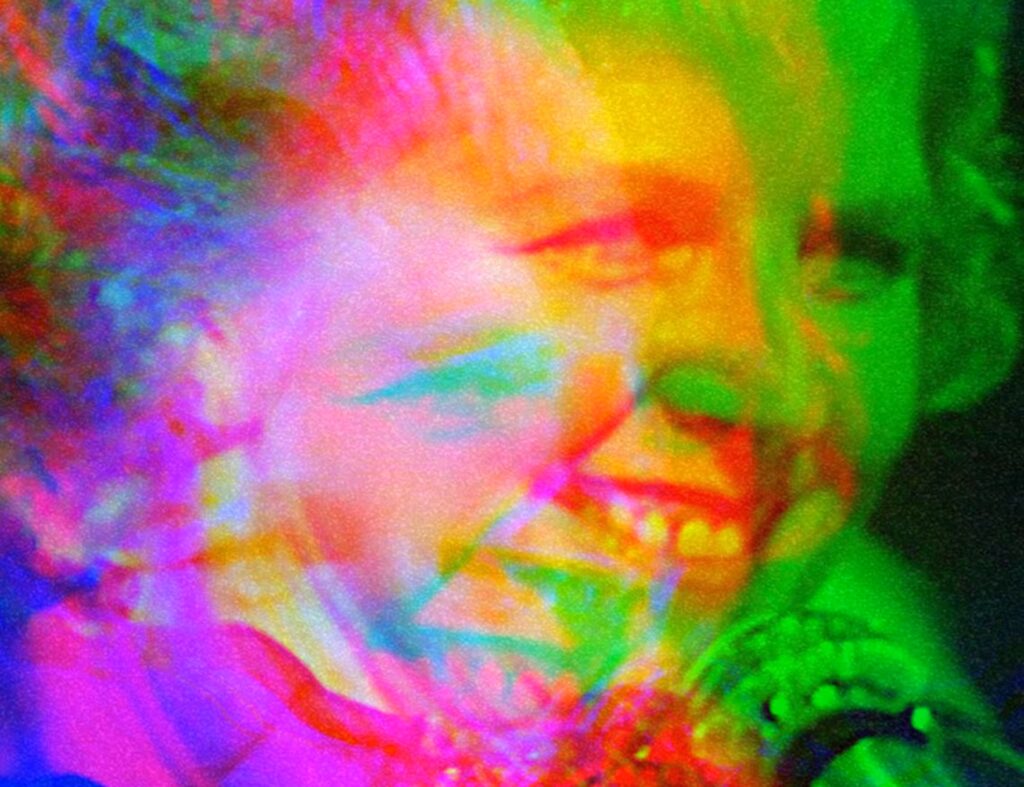
Here’s Adam Curtis in the Guardian, explaining the through-line of his latest (very good) film series.
It shows us the moment — and a named individual in James Buchanan — when modern work as we know it was born.
It is also relevant to a comment left at this website professing that people want “to contribute to society in some positive way. Unfortunately, at some point it was decided that wage slavery was the best way to harness that.”
[The British Prime Minister of 1979-1990, Margaret Thatcher,] believed that if you liberated people from state control they would become better and more confident. But to do this, she turned to radical rightwing economic thinkers – some of whom were very odd. About 15 years ago, I went to see a US economist called James Buchanan. I had to drive for hours deep into the mountains of Virginia to his farm. He told me that you couldn’t trust anyone in any position of power. Everyone, he insisted, is driven by self-interest.
He called this “public choice theory,” and it had an enormous effect on the advisers around Thatcher. It explained to them why all the bureaucrats that ran Britain were so useless. The economists invented a system called New Public Management (NPM) to control them. NPM said it was dangerous to leave people to motivate themselves through fuzzy notions such as “doing good.” Instead, you created systems that monitored everyone through targets and incentives. Constantly watching and rewarding or punishing. It was the birth of modern HR.
There is a very good moment that was captured on a documentary about London Zoo in 1993 made by Molly Dineen. The zoo had brought in a new HR expert who explains to the mild-mannered zookeepers how incentives and targets work. “Once you do that,” he says, “you’ve got them in the Grinder.”
That’s Buchanan’s theories at work. And it was a terrible virus that was going to spread.
*
The Escapes of Yuan Hongdao
Thanks to Reader B for sending us this from the Globe & Mail.
Like employees today, [workers] of the 16th century felt pressure to be perpetually productive as state officials who faced crushing workloads and operated under performance reviews that were similar to modern-day key performance indicators, or KPIs.
Urgh. But:
In response, they found small, personal ways to rebel against toxic workplaces, such as focusing on nature and enjoying simple acts such as sipping tea.
Hooray!
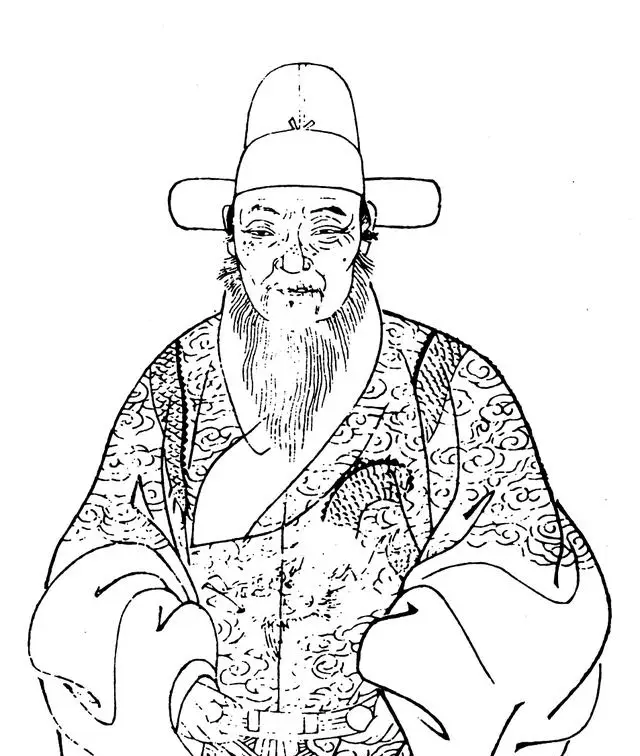
And in particular:
Yuan Hongdao, a state official who became a popular writer during the Ming dynasty, is a centuries-old version of what would now be considered a quiet quitter … There are records of him attempting to resign from his position seven times, sometimes faking illness … He was believed to be successful in three of his attempts. Why was he so determined? Yuan wanted to travel around what is now Eastern China, spending his time writing poetry or essays, painting and meeting with people in literary circles. His goal was idleness … Taking time, not to be lazy, but to be unproductive.
Thank you, Reader B, for introducing us to the admirably slippery poet Yuan Hongdao.
*

